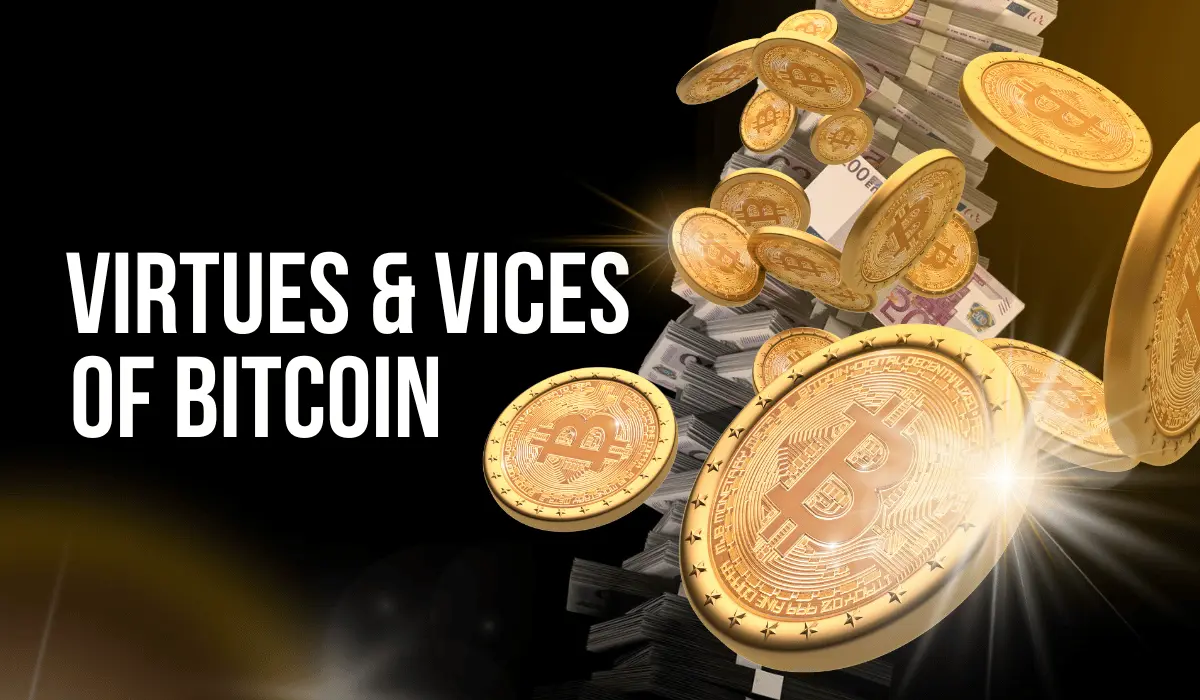Introduce
In the realm of digital currencies, Bitcoin stands tall as the pioneer, the trailblazer that sparked a revolution in finance and technology. Its journey has been nothing short of remarkable, characterized by dizzying highs and gut-wrenching lows. Yet, amidst the volatility and fervor, Bitcoin remains a subject of intense debate, lauded as a symbol of financial liberation by some and dismissed as a speculative bubble by others. In this article, we delve into the dichotomy of Bitcoin, exploring its virtues and vices, and attempt to shed light on the complex nature of this enigmatic cryptocurrency.
The Good Side of Bitcoin:
1. Financial Inclusion:
Bitcoin has the potential to revolutionize the traditional financial system by providing financial services to the unbanked and underbanked populations worldwide. With Bitcoin, individuals can participate in the global economy without the need for intermediaries such as banks, thus democratizing access to financial services.
2. Decentralization:
At the core of Bitcoin lies its decentralized nature, free from the control of any single entity or government. This decentralization ensures that no central authority can manipulate the currency for their own gain, fostering trust and transparency within the Bitcoin ecosystem.
3. Hedge Against Inflation:
With its fixed supply of 21 million coins, Bitcoin is often touted as a hedge against inflation and currency devaluation. In an era of unprecedented monetary stimulus and quantitative easing, Bitcoin offers a store of value that is immune to the whims of central banks and governments.
4. Innovation in Finance:
The underlying blockchain technology of Bitcoin has spurred a wave of innovation in finance, paving the way for decentralized finance (DeFi) applications, smart contracts, and tokenization of assets. These developments hold the potential to revolutionize traditional financial systems and democratize access to financial instruments.
The Bad Side of Bitcoin:
1. Volatility:
Bitcoin’s price volatility is both a blessing and a curse. While it has the potential to generate astronomical returns for investors, it also exposes them to significant risk. The wild price swings of Bitcoin make it unsuitable for conservative investors and raise concerns about its stability as a medium of exchange.
2. Regulatory Uncertainty:
The regulatory landscape surrounding Bitcoin remains murky and uncertain in many jurisdictions. Government crackdowns, regulatory scrutiny, and bans on cryptocurrency trading can create uncertainty and hinder the mainstream adoption of Bitcoin.
3. Environmental Concerns:
The energy-intensive process of Bitcoin mining has come under scrutiny due to its environmental impact. Critics argue that the carbon footprint of Bitcoin mining is unsustainable and contributes to climate change. Addressing these concerns is crucial for Bitcoin to maintain its legitimacy in an increasingly environmentally conscious world.
4. Security Risks:
Despite its reputation for security, Bitcoin is not immune to hacking, fraud, and theft. The decentralized nature of Bitcoin makes it difficult to recover stolen funds, and high-profile security breaches have tarnished its image as a secure store of value.
FAQ: Bitcoin virtues and vices
What are the virtues of Bitcoin?
Bitcoin offers financial inclusion and decentralization and acts as a hedge against inflation.
What are the vices of Bitcoin?
Bitcoin’s volatility, regulatory uncertainty, environmental impact, and security risks are notable challenges.
How does Bitcoin contribute to financial inclusion?
By enabling individuals to access financial services without traditional banking systems.
Is Bitcoin a hedge against inflation?
Yes, its fixed supply of 21 million coins offers protection against inflationary pressures.
How does regulatory uncertainty affect Bitcoin?
It creates obstacles for adoption and investment, leading to uncertainty for users and businesses.
What are the environmental concerns related to Bitcoin?
Energy-intensive mining contributes to carbon emissions, raising sustainability concerns.
Is Bitcoin secure?
While decentralized and secure, it is not immune to hacking, fraud, or theft.
How does Bitcoin’s volatility impact investors?
It offers opportunities for high returns but also poses the risk of substantial losses.
What innovations in finance have Bitcoin enabled?
It has fostered innovations like decentralized finance (DeFi) and smart contracts.
How can individuals navigate Bitcoin’s virtues and vices?
Stay informed, diversify investments, and practice risk management strategies.
Conclusion: Bitcoin virtues and vices
In conclusion, Bitcoin is a double-edged sword, embodying both the promise of a decentralized future and the perils of speculative excess. Its virtues, such as financial inclusion and decentralization, hold the potential to transform the global economy for the better. However, its vices, including volatility, regulatory uncertainty, environmental concerns, and security risks, pose significant challenges that must be addressed for Bitcoin to realize its full potential. As Bitcoin continues to evolve and mature, navigating the waves of its virtues and vices will be essential to shaping the future of finance and technology.


